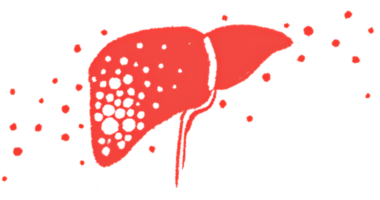Obizur Prevents Bleeding in Surgery for Patient With Acquired Hem A

Obizur (susoctocog alfa), a pig-derived replacement therapy, can be used to prevent bleeding in people with acquired hemophilia A who need to undergo surgery, a new case report highlights.
The report, “Successful perioperative prophylaxis with susoctocog alfa in a patient with acquired haemophilia A: A case study,” was published in the journal Haemophilia. It was sponsored by Takeda, the company that markets Obizur.
Hemophilia A is caused by the lack of a clotting protein, called factor VIII (FVIII). In most cases of hemophilia A, FVIII is defective because of genetic mutations. By contrast, acquired hemophilia A is caused by the body’s immune system making antibodies, called inhibitors, that erroneously target FVIII, preventing it from working properly.
Since excessive bleeding is a concern in acquired hemophilia A, surgeries need to be done sparingly, with pre-emptive measures in place to prevent bleeds.
In this report, five researchers in Poland described the case and management of a 64-year-old man with acquired hemophilia A who underwent surgery.
The patient, who had been diagnosed with acquired hemophilia A three years before, was admitted for surgery to correct entropion on his left eye. Entropion is a condition in which the eyelid, usually the lower one, turns in, such that the eyelashes rub against the eyeball.
“The surgery was necessary because of a high risk of irreversible corneal [the outer part of the eye] damage and vision loss,” the researchers wrote.
Since the man had acquired hemophilia A, steps needed to be taken to prevent excessive bleeding during surgery.
“Although entropion surgery is a minor procedure, bleeding in the eye can cause severe irreversible disability including vision loss,” the researchers wrote.
Before surgery, the man was given Obizur, which is a version of FVIII derived from pigs that has been approved for treating bleeds in people with acquired hemophilia A. This therapy was chosen because the patient had detectable levels of antibodies against the human version of FVIII.
The surgery itself was uneventful, and after surgery, the man received some additional doses of Obizur based on FVIII activity levels measured in his blood.
The team noted a fair amount of variation in FVIII activity after surgery, and relatively high doses of Obizur were needed in the days immediately following the procedure. Researchers stressed the importance of actively monitoring FVIII activity in patients to ensure that the clotting factor’s activity is high enough to prevent bleeding.
“This case report shows that [Obizur] can provide effective [surgery bleeding control] in patients with acquired haemophilia A, even when neutralizing antibodies against human FVIII are detectable,” the researchers wrote.
“Our observations show promise, particularly for patients who require surgery but do not achieve complete remission. However, more data are needed,” they wrote. “A clinical trial among patients with acquired haemophilia A who receive [Obizur around the time of surgery] could extend our knowledge about the safe and effective use of this medication in different types of invasive procedures.”







